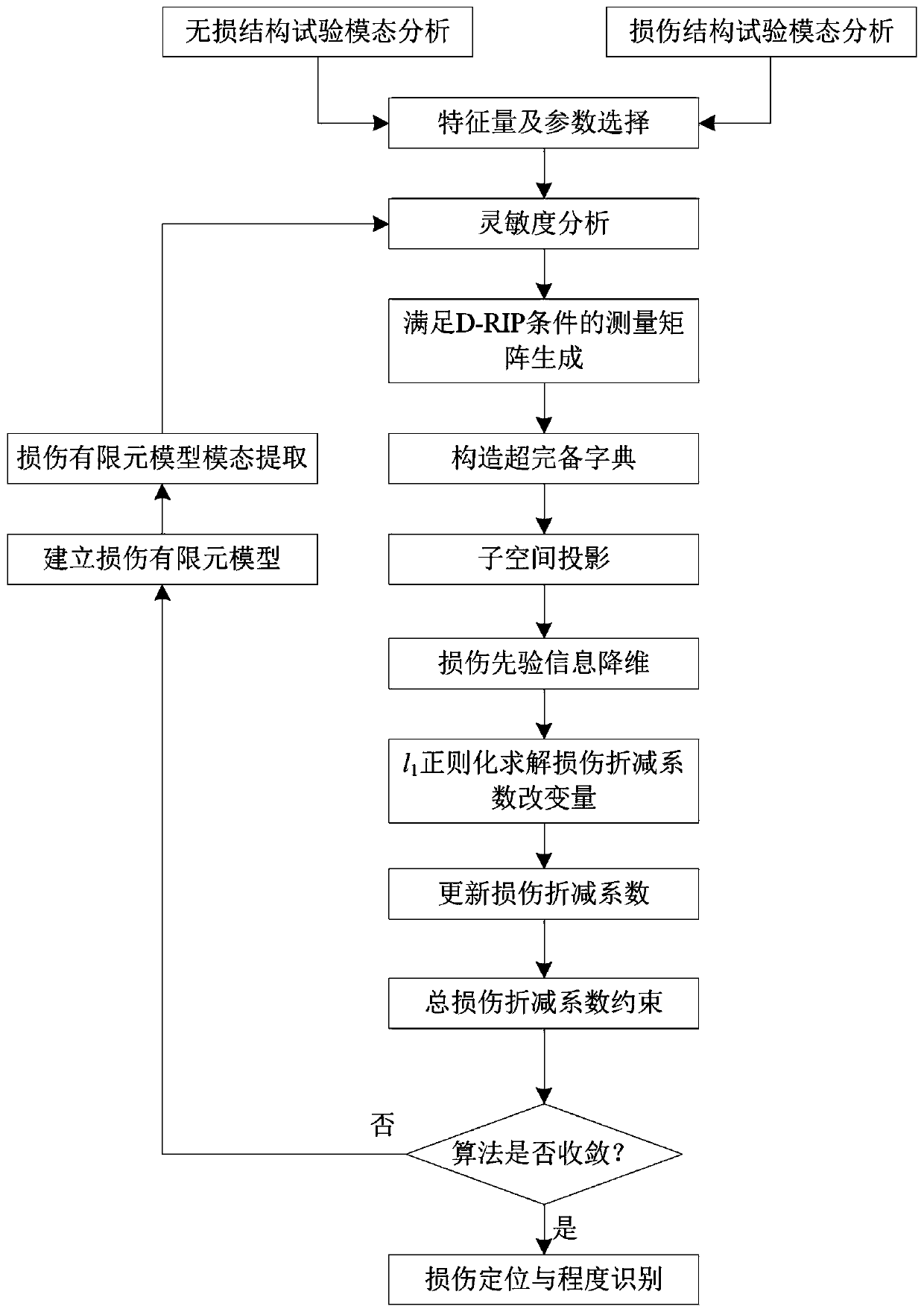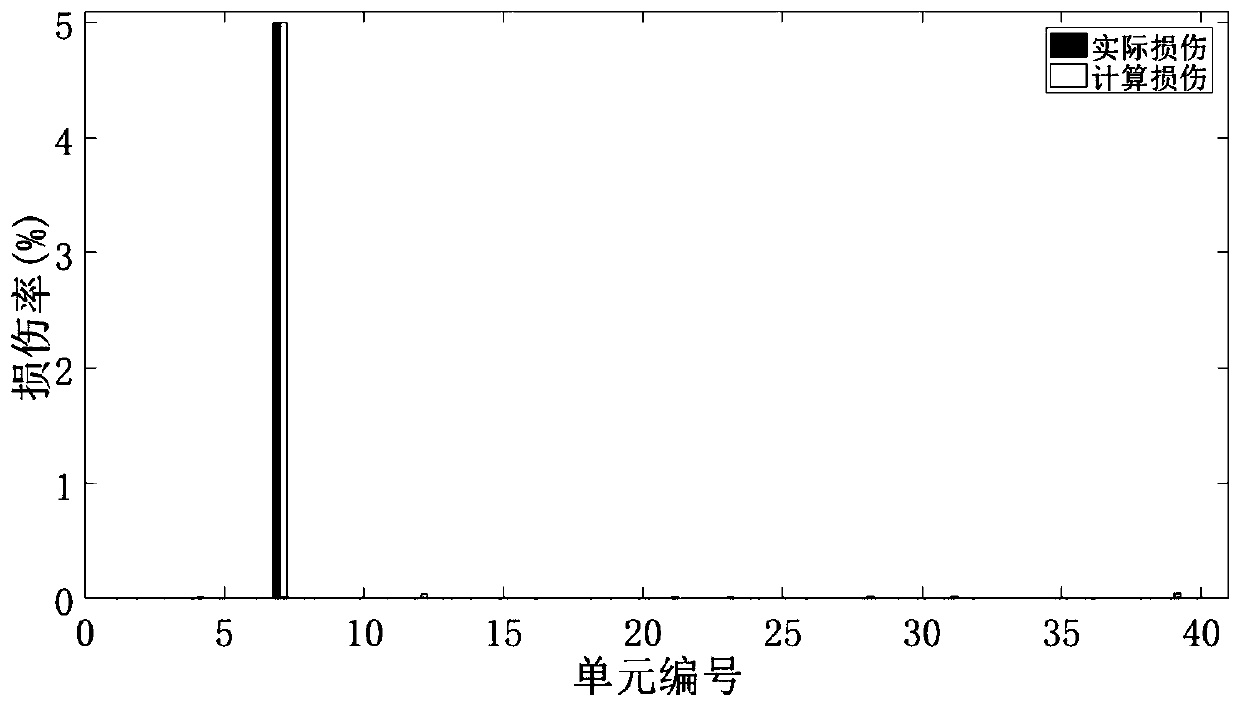A Structural Damage Identification Method Based on Subspace Projection and Sparse Regularization
A subspace projection and structural damage technology, applied in structural damage identification, structural damage identification based on subspace projection and sparse regularization, can solve problems such as unreasonable, limited structural response information, and unstable solution to structural damage identification problems. Achieve fast processing, reduce computing costs, and ensure security
- Summary
- Abstract
- Description
- Claims
- Application Information
AI Technical Summary
Problems solved by technology
Method used
Image
Examples
Embodiment
[0056] The main implementation process of the present invention for structural damage identification is as follows: figure 1 As shown, the specific steps of a structural damage identification method based on subspace projection and sparse regularization are:
[0057] S1. Acceleration sensors are arranged on the structure to record structural response information;
[0058] S2. Arrange force sensors at the excitation point, and perform test modal analysis on the structure in the non-destructive state (non-destructive structure) and the structure in the damaged state (damaged structure) respectively, and extract the structural modal information;
[0059] S3, select the structural feature quantity and parameters, and establish the sensitivity equation;
[0060] S4. Construct a measurement matrix satisfying the D-RIP condition;
[0061] S5. Perform subspace projection on the sensitivity equation;
[0062] S6, introduce l 1 Norm regularization to establish structural damage iden...
PUM
 Login to View More
Login to View More Abstract
Description
Claims
Application Information
 Login to View More
Login to View More - R&D
- Intellectual Property
- Life Sciences
- Materials
- Tech Scout
- Unparalleled Data Quality
- Higher Quality Content
- 60% Fewer Hallucinations
Browse by: Latest US Patents, China's latest patents, Technical Efficacy Thesaurus, Application Domain, Technology Topic, Popular Technical Reports.
© 2025 PatSnap. All rights reserved.Legal|Privacy policy|Modern Slavery Act Transparency Statement|Sitemap|About US| Contact US: help@patsnap.com



